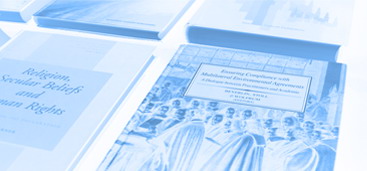Dean of Law Faculty, Peoples Friendship University of Russia (Moscow).
1. Introduction (Russia as a part of Europe).
Different dimensions of Europe: in geographical sense Europe is a part of the world forming with Asia continent named Euroasia; from linguistic and cultural points of view Europe is a unique balance between unity and diversity; politically Europe includes about 50 independent States; internationally Europe divided in some international unions, 2 of which pretends to consider as common European international organizations; finally, Europe is good example of diversity of national educational systems, including legal educational systems. Now Russia is a part of Council of Europe and a member of OSCE. So Russia is vitally interested in develop cooperation with Europe in different fields including education.
2. Bologna process: some implications.
The Bologna declaration (1999) emphasized the creation of the European area of higher education as a way to reach:
- adoption of a system of easily readable and comparable degrees;
- adoption of a system essentially based on two main cycles (Bachelors and Masters degree);
- adoption of a system of credits Ė such as in the ECTS system;
- promotions of obstacles to the academic mobility for both students and teachers;
- promotion of some form of European quality assurance, etc.
3. Russia and Bologna process.
Russia became a member of Bologna process in September 2003 during the
Berlin meeting. From that time in the country began the process of
harmonization of national educational legislation with the Bologna
requirements. But at the same time the rectors of several Russian
universities come out against the adoption of Bologna documents by
Russia. The division of Russian higher education sector in supporters
and opponents of Bologna process is also existing in legal higher
education sector although Russian educational legal community is more
tolerant of idea to europeanisation of educational policy based on
Bologna process.
4. Russian Higher Legal Education system: contemporary state.
The system of higher legal education in Russia has the same
characteristics as a system of Russian Higher education in whole. The
main legislative acts are Federal Law on Education (1992) and Federal
Law on Higher Education and Postgraduate Education (1996). No special
legislative acts in the field of legal education. Russian Higher Legal
Education is based on the state educational standards which is
intended for providing the quality of higher education and the unity
of educational area of the country, the basis for objective evaluation
of the activity of educational institutions etc.
Russian Higher Legal Education is characterizing as many stages
process. In fact in Russia the following stages are established:
- the bachelor degree,
- the diploma certified specialist degree,
- the master degree.
The higher legal education may be obtained in the following types of
higher education institutions: University, Academy, Institute.
5. Practical steps of harmonization of Russian Higher Legal Education.
5.1. The first step is the simplification of existing scheme of
degrees of higher legal education. It is necessary to pass from three
levels system to two levels system to establish a system of easily
readable and comparable degrees of legal education.
5.2. We should define more precisely the existing levels of
specializations of the program for Masters because now the number of
specializations in the postgraduate studies (Aspirantura) and in
Master program is practically the same. Making of Masterís programs
for the direction ďJurisprudenceĒ should be based on the principle of
matching determined specific professional activities.
5.3. We need to change the existing teaching plan of Masterís training.
The structure of the existing teaching plan of Masterís training is
simple copy of the structure of the teaching plan of Bachelorís
training what is not write from methodological point of view.
5.4. We need to introduce in the educational process the system of
credited hours or transferable accounted points because it is the way
to harmonize our educational system with the Bologna process and the
mean to use a new educational technology in our educational
institutions.
5.5. The next logic step in this direction is to reevaluate the
importance of autonomous work done by students. We should admit that
the major change in educational technology due to use of credits
consists in shifting the center of gravity to autonomous student work.
There are some forms of autonomous work which aim at extending of
studentís knowledge and development of analytical skills on the
problems of dispensed discipline. Some of them may be propose to
include in new state educational standard (standard of the third
generation).
6. Conclusions.

